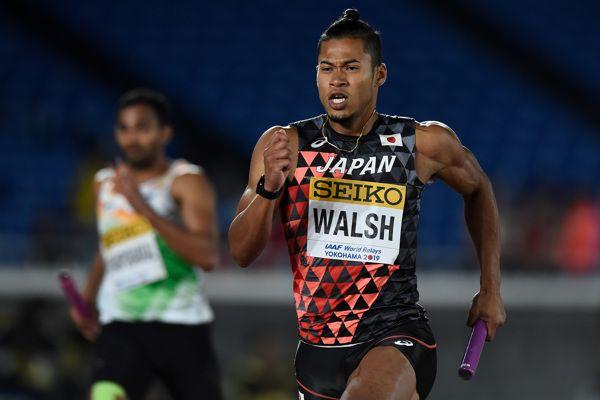Japan’s athletics chief struggled to hold back tears as he recalled the immense challenges faced during the Covid-19 pandemic that overshadowed the Tokyo Olympics. In an emotional moment, the official reflected on the resilience and dedication of athletes and organizers alike, highlighting the extraordinary efforts required to safely host the Games amidst unprecedented global uncertainty. This rare display of vulnerability sheds light on the profound impact of the pandemic on Japan’s sporting community and the enduring spirit driving its athletics leadership.
Japan Athletics Chief Reflects on Emotional Toll of Hosting Olympics Amid Pandemic
Behind the scenes of the Tokyo Olympics, the burden borne by organizers was immense, with the athletics chief vividly recalling the emotional and logistical challenges. As the pandemic raged across the globe, efforts to maintain the games’ integrity while ensuring safety pushed officials to their limits. The chief, visibly moved, expressed how the relentless uncertainty and stringent health measures created a unique atmosphere of restraint and resilience among athletes and staff alike.
Key hurdles included:
- Strict quarantine protocols enforcing isolation periods that affected athlete preparation.
- Empty stadiums stripping away the usual crowd energy that fuels competition.
- Continuous testing regimes to prevent outbreaks within Olympic villages.
| Challenge | Impact |
|---|---|
| Travel Restrictions | Athletes faced delayed arrivals and practice disruptions |
| Health Protocols | Constant testing created heightened anxiety and fatigue |
| Audience Ban | Loss of live spectator support altered competition dynamics |
Challenges Faced in Organizing Covid-Hit Tokyo Games and Lessons Learned
Organizing the Tokyo Olympics under the shadow of the pandemic pushed Japan’s athletics officials to their limits. Beyond the usual logistical complexities of hosting a global event, the team grappled with unprecedented health concerns, constantly evolving restrictions, and the heavy emotional toll of working under such pressure. One of the biggest hurdles was ensuring the safety of athletes and staff amid fluctuating infection rates, which demanded rapid adjustments to training schedules, testing protocols, and travel arrangements. This uncertainty bred anxiety not only among participants but also within the host community, challenging the resolve of everyone involved.
From these struggles emerged valuable insights and a strengthened playbook for future crises. Key lessons included the critical necessity of transparent communication, the effectiveness of flexible contingency planning, and the importance of mental health support for all stakeholders. The experience underscored that meticulous preparation must be paired with agility, as demonstrated in the quick pivoting of event formats and the introduction of strict bio-secure bubbles. The legacy of Tokyo 2020 is now not only in its record-breaking performances but also in its advancement of crisis management standards for international sporting events.
- Adaptive scheduling: Shifting events to minimize crowding and exposure risks.
- Robust testing: Daily screenings to quickly isolate cases.
- Travel restrictions: Coordinated limitations to control virus spread.
- Psychological support: Counseling services for athletes and staff.
| Challenge | Response | Outcome |
|---|---|---|
| Rapid infection spikes | Immediate event postponements and protocol updates | Maintained event continuity and safety |
| Rapid infection spikes | Immediate event postponements and protocol updates | Maintained event continuity and safety |
| Changing government regulations | Flexible contingency plans with agile decision-making | Smooth adaptation to evolving restrictions |
| Athlete and staff anxiety | Provision of mental health resources and counseling | Improved wellbeing and performance focus |
| Travel complications | Coordinated travel restrictions and bio-secure bubbles | Minimized cross-infection risks during transit |
If you want me to help with any specific edits, summaries, or additional content, feel free to ask!
Recommendations for Future Global Sporting Events in a Post-Pandemic World
Future global sporting events must prioritize comprehensive health protocols to safeguard athletes, staff, and spectators alike. Implementing rigorous testing regimes alongside adaptive quarantine measures can mitigate disruptions without compromising the spirit of competition. Additionally, embracing hybrid event models-combining limited in-person attendance with enhanced virtual fan experiences-will ensure accessibility and engagement, regardless of travel restrictions or public health concerns.
Organizers should also invest in technological innovations that improve flexibility and resilience. For example, enhanced contact tracing apps, real-time health monitoring systems, and AI-driven crowd management tools can proactively address potential risks. The table below outlines key recommendations and their potential impact:
| Recommendation | Benefit | Implementation Consideration |
|---|---|---|
| Dynamic Attendance Caps | Reduces virus spread risk | Flexible scaling based on local outbreaks |
| Virtual Fan Engagement | Expands global reach | Requires robust streaming infrastructure |
| Integrated Health Monitoring | Real-time risk assessment | Privacy and data security safeguards |
Wrapping Up
As the Tokyo Olympics fade into history, the emotional reflections of Japan’s athletics chief underscore the profound impact of the pandemic on the world’s biggest sporting event. Despite the unprecedented challenges and heartbreaking moments, the resilience and spirit displayed throughout the Games remain a testament to the strength of athletes and organizers alike. The memory of the Covid-hit Olympics will endure not only as a story of adversity but also as a symbol of hope and perseverance in the face of global uncertainty.




